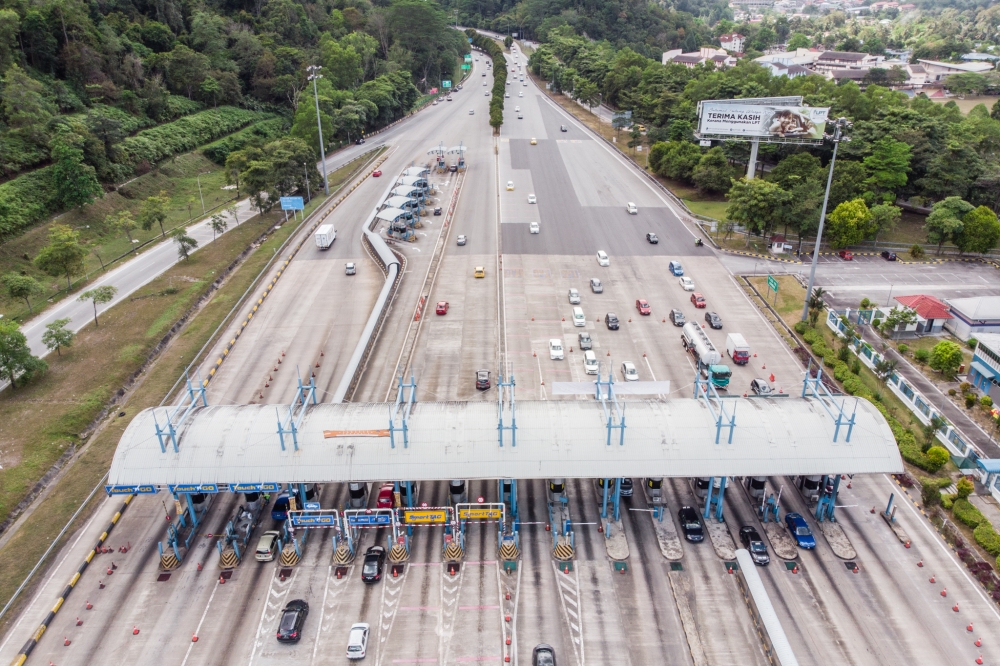KUALA LUMPUR, Jan 5 — The tension between Umno and Parti Pribumi Bersatu Malaysia (Bersatu) has been amped up by speculation that a general election could be held this year, forcing the “sibling” parties to start fighting over seat distributions.
Over the weekend, various Umno leaders used their respective divisional assemblies as a platform to argue against collaborating with the coalition led by Prime Minister Tan Sri Muhyiddin Yassin.
Umno president Datuk Seri Ahmad Zahid Hamidi said on Sunday the party intends to contest all parliamentary and state seats it won in the 14th general election ahead of any seat negotiations with Perikatan Nasional (PN), the ruling coalition spearheaded by Bersatu.
Umno used to enjoy undivided control of these Malay-majority semi-urban and rural seats — mostly in the peninsula and Sabah — but the formation of Bersatu fragmented its power base, with the splinter group now helming nearly half of Umno’s traditional constituencies.
But whether or not this rivalry will result in multi-cornered contests very much depends on the seat negotiations, which is expected to happen soon.
Malay Mail looks at some of the key federal and state seats that could see Umno and Bersatu clash:
Pagoh
Muhyiddin is the incumbent and has held the parliament seat since 1978, as then Umno member and division chief and now as Bersatu president.
But on Saturday, Umno’s Pagoh chapter called on the party to field a candidate, even as its Johor liaison committee chief Datuk Seri Dr Adham Baba suggested that the party may let Muhyiddin defend his seat.
However, the gesture hinged on the condition that Bersatu stay out of Pahang, Kelantan, and certain seats in Perak.
Gombak (Selangor)
Datuk Seri Azmin Ali, the former PKR deputy president who defected to Bersatu after the “Sheraton Coup”, has held the federal seat in Selangor since 2008.
Last August, the Gombak Umno chapter hinted its intention to challenge the international trade and industry minister for the seat even if the two parties are technically allies.
This fueled speculation that Azmin may look for a “safer” seat elsewhere although it is still just speculation.
Jeli (Kelantan)
The parliament seat in Kelantan, a PAS-controlled state, had remained an Umno stronghold for over three decades until the incumbent Datuk Seri Mustapa Mohamed defected to Bersatu shortly after Barisan Nasional’s defeat in the 2018 polls.
Umno secretary-general Tan Sri Annuar Musa recently backed his party’s call to disallow Bersatu from contesting in Kelantan. The latter has yet to state if it would do so.
Larut, Bagan Serai, Bukit Gantang (Perak)
The three federal seats were won by Umno but their MPs later defected to Bersatu.
Umno is reportedly keen to defend the Tualang Sekah and Sungai Manik state seats which it won back in 2018.
Datuk Tajuddin Abdul Rahman, the party’s Pasir Salak parliamentarian and an influential “warlord” in the state, has also rejected the idea of aligning with Bersatu.
Tasek Gelugor (Penang)
Bersatu in Penang has one parliamentary seat, namely Tasek Gelugor, held by Datuk Shabudin Yahaya, but the party will likely be challenged by Umno after the party’s state liaison chief Datuk Musa Sheikh Fadzir said there will be no co-operation between the two sides.
Musa said the decision was reached after the respective divisional delegates’ passed a motion during its annual general meeting on Sunday, calling for the party to defend all seats traditionally contested by the party, by strengthening co-operation with PAS through Muafakat Nasional (MN).
Bersatu also currently holds four state assembly seats — Bertam, Seberang Jaya, Teluk Bahang, and Sungai Acheh.
Pahang
Bersatu failed to win any seats in the Umno-stronghold state, where former prime minister Datuk Seri Najib Razak still wields massive influence.
The former Umno president has also backed calls to shun Bersatu, a view that state menteri besar and liaison chief Datuk Seri Wan Rosdy Wan Ismail publicly supported on Sunday.
He said Bersatu should not contest in the state at all because it does not have a single parliamentary or state seat there.



















